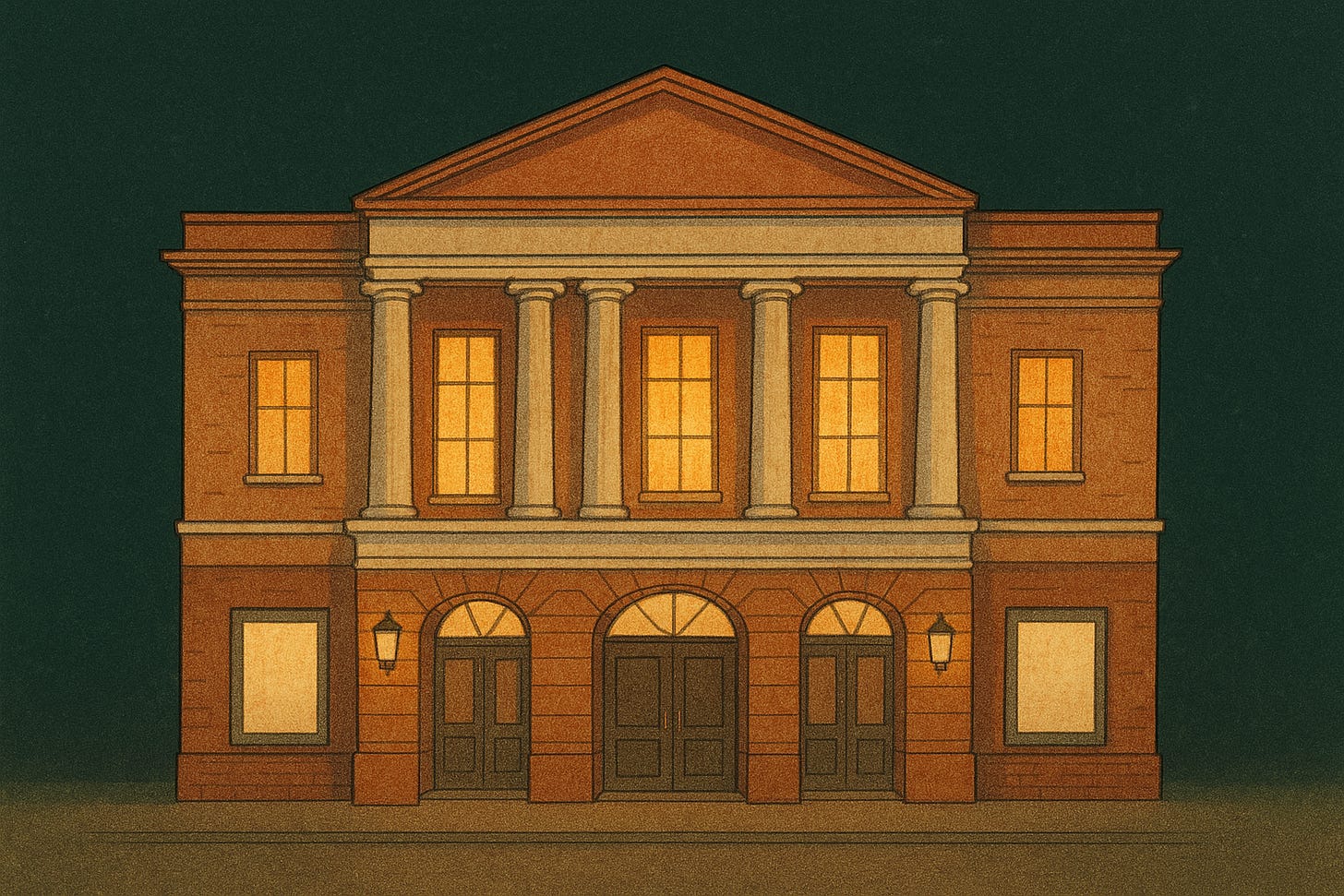What happens now is only the dress rehearsal.
Rehearsal without performance is motion.
A few years ago, I once played a minor role in a theatre production. I was cast as “the security guard”, a character who delivered precisely zero lines before exiting the stage forever.
The rehearsals stretched on for days. We practised entrances, exits, and the timing of jokes. I remember the director pacing back and forth, clapping his hands, reminding us that this was “only the rehearsal”. The real performance, he insisted, was yet to come.
When the night of the performance arrived, my zero lines flew by in an instant (well, as they should!). The audience observed politely. My big debut was over before I had time to be nervous.
I recall walking home with an odd mixture of pride and deflation. All those days of rehearsals, and then, the thing itself was gone, evaporated like mist.
That memory has stuck with me, not because of my stellar acting career (which ended that very night), but because life often feels like an endless string of rehearsals. We prepare for the job we’ll have one day. We save for the trips we’ll take one day. We imagine the person we’ll become one day. In the meantime, we treat the present moment as a temporary rehearsal.
It’s a seductive story: the idea that life is divided into preparation and performance. But the danger is obvious. If we keep treating today as the dress rehearsal, we may never actually live the play.
This tendency shows up everywhere. I’ve caught myself saying things like:
Once I’ve read a few more books, I’ll start writing seriously.
Once I’ve saved enough, I’ll travel boldly.
Once I feel ready, I’ll commit fully to this relationship.
The truth, though, is summed up by Seneca in On the Shortness of Life: “It is not that we have a short time to live, but that we waste much of it.”
His point is sharp: life isn’t waiting backstage for us to give the signal. It’s already onstage, unfolding, with or without our lines delivered.
I think of a parable I once heard about two gardeners. One spent all his time sharpening tools, reading manuals, and designing perfect diagrams of flowerbeds.
The other went outside, put seeds into the ground, and watered them daily. By summer, one had a lush, imperfect but living garden. The other had a perfectly drawn plan and barren soil.
The parable isn’t anti-preparation; preparation matters. Rehearsals matter. But they mustn’t become permanent homes.
James Clear, in Atomic Habits, refers to this as “motion versus action”: motion feels like progress, but only action yields results. Rehearsal without performance is motion.
Planting is an action.
There’s another layer here, too: rehearsals feel safe. They are private, adjustable, forgiving. Performances, on the other hand, expose us to the possibility of failure.
They reveal whether our plans hold up under the glare of reality. To step into performance mode is to risk embarrassment, to acknowledge imperfection, which is precisely why many of us linger in dress rehearsals for years.
But life has no guarantee of an opening night. As the poet Mary Oliver asked: “Tell me, what is it you plan to do with your one wild and precious life?”
The question is urgent because there may be no second act. Today may be the show.
Of course, this doesn’t mean living recklessly or ignoring preparation altogether. It means refusing to postpone the essence of life. It means remembering that joy, fulfilment, and meaning are not deferred payments; they are available in fragments, right now.
When I write these essays, a part of me still whispers: “This is just practice. The real writing will come later, when you’re wiser, more skilled, more prepared.” But then I catch myself.
No, this is not a rehearsal. This is the writing. These very words, flawed as they may be, are the thing itself.
And perhaps that’s enough.
So here I sit, with no stage lights or audience applause, only the glow of a laptop screen. The lines are messy, the delivery is imperfect, and the timing is uncertain. But I am no longer rehearsing. I am performing, however small the stage may be.
What happens now is not merely the dress rehearsal. It is the play itself. And that, I suspect, is the point of being here at all.
Thank you for reading. Your time and attention mean everything. This essay is free, but you can always buy me coffee or visit my shop to support my work. For more thoughts and short notes, please find me on Instagram.



